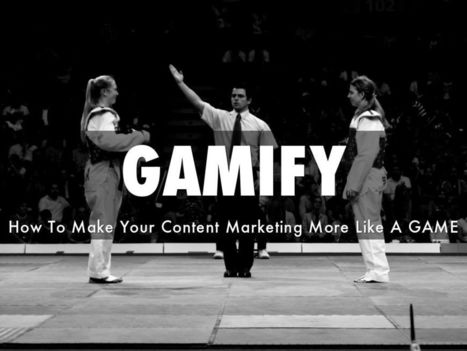I’m seeing more Scoopit links in my Twitter stream and I’m not crazy about it. Sure it’s quick and easy to share with Scoopit. But it not quick and easy to consume. For me it's all about the econ...
Marty Note (here is comment I wrote on Dr. V's blog)
Appreciate Bryan’s and Joseph’s comment, but I rarely use Scoop.it as a pass through. More than 90% of the time I’m adding “rich snippets” to content I Scoop.
Rich snippets are “blog” posts that fall between Twitter and the 500 to 1,000 words I would write in Scenttrail Marketing. I often create original content ON Scoop.it because whatever I’m writing falls in the crack between Twitter’s micro blog and what I think of as needing to be on my marketing blog.
I was taught NOT to pass through links on Scoop.it early on by the great curator @Robin Good . Robin has well over 1M views on Scoop.it now and his advice along with the patient advice of other great Scoop.it curators has my profile slouching toward 150,000 views.
Bryan is correct that some curators new to Scoop.it haven’t learned the Robin Good lesson yet. I agree it is frustrating to go to a link and not receive anything of value back, to simply need to click on another link. Curators who pass through links won’t scale, so the Darwinian impact will be they will learn to add value or die out.
For my part I always identify my Scoop.it links, probably about half the content I Tweet and about a quarter of my G+ shares. I also routinely share my favorite “Scoopiteers”, great content curators who taught me valuable lessons such as don’t simply pass through links but add “micro blogging” value via rich snippets.
When you follow or consistently share content from a great curator on Scooop.it you begin to understand HOW they shape the subjects they curate. I know, for example, Robin Good is amazing on new tools. Scoop.it anticipated this learning and built in a feature where I can suggest something to Robin.
This is when Scoop.it is at its most crowdsourcing best because I now have an army of curators who know I like to comment on and share content about design or BI or startups and they (other Scoopiteers) keep an eye out for me. There are several reasons Scoop.it is a “get more with less effort” tool and this crowdsourcing my curation is high on the list.
So, sorry you are sad to see Scoop.it links and understand your frustration. You’ve correctly identified the problem too – some curators don’t know how to use the tool yet. I know it is a lot to ask to wait for the Darwinian learning that will take place over generations, but Scoop.it and the web have “generations” that have the half life of a gnat so trust that the richness of the Scoop.it community will win in the end and “the end” won’t take long.
To my fellow Scoop.it curators we owe Bryan and Joseph thanks for reminding us of what Robin Good taught me – add value or your Scoop.it won’t scale. That lessons is applicable to much more than how we use Scoop.it.
Marty
Added to G+ too
https://plus.google.com/102639884404823294558/posts/TUsNtsAsjWp
Via
Martin (Marty) Smith,
NLafferty



 Your new post is loading...
Your new post is loading...







![Why I Don't Like Scoopit Links on Twitter [+Scenttrail Comment] | Co-creation in health | Scoop.it](https://img.scoop.it/0jOGI-xZjHycbocBgZ_llDl72eJkfbmt4t8yenImKBVvK0kTmF0xjctABnaLJIm9)








add your insight...